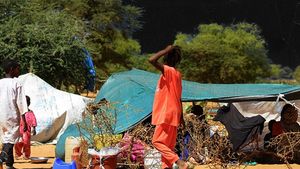BENGKULU - The Bengkulu Provincial Health Office (Dinkes) reminded the public to be careful about the potential spread of the Nipah Virus reflecting on the COVID-19 pandemic which has spread throughout the world.
"Don't panic, in Indonesia until now we have not received any information from the Ministry of Health regarding transmission or cases. But most importantly, caution, don't be negligent, we have had experience with the COVID-19 pandemic," said Head of the Bengkulu Provincial Health Office, Herwan Antoni in Bengkulu, Antara, Monday, September 18.
Indonesia has so far been recorded to be safe from virus transmission. However, continued Herwan, being safe does not mean neglecting the potential for the spread of the virus because in other countries there have been cases detected.
"Maintaining cleanliness, health, this is the most important thing. The food that will be consumed ensures that it is sterile and healthy, does not consume things that endanger health," he said.
The public, he said, could also implement health protocols as was done during the COVID-19 pandemic to prevent the transmission of infectious diseases by air. Health protocols wear masks, keep your distance, wash your hands, and keep your body clean and clothes clean.
"The information that is currently developing (Virus Nipah) is not yet known whether it is also transmitted by air. The information is currently contagious from animals to humans, but it would be better if it also prevented the possibilities if there was air transmission," he said.
Previously reported, India experienced an outbreak of the Nipah Virus (NiV) that occurred between humans. The report said the outbreak spread in the Kerala area, South India.
The Centers for Disease Control and Prevention (CDC) explains that the Nipah Virus (NiV) is a zoonotic virus, meaning it can spread between animals and humans.
Fruit bats are NiV reservoir animals in nature. The Nipah virus is also known to cause disease in pigs and humans. The outbreak, according to the CDC, occurs almost every year in parts of Asia, especially Bangladesh and India.
The English, Chinese, Japanese, Arabic, and French versions are automatically generated by the AI. So there may still be inaccuracies in translating, please always see Indonesian as our main language. (system supported by DigitalSiber.id)
Tags les plus populaires
#Prabowo Subianto #Nouvel An #Syrie #nataru #NatalPopulaire
20 Desember 2024, 08:06










